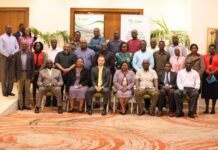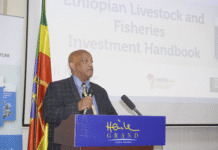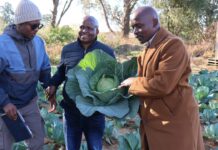The Vumelana Advisory Fund, a non-profit organisation that helps communities that have land rights to make their land productive, has received R5 million in funding support from the Sanlam Foundation. The grant will support Vumelana’s ongoing work of fostering collaboration between landowners and investors to fulfil South Africa’s land reform objectives of promoting investment and creating employment.
Commenting on the investment made by the Sanlam Foundation, Peter Setou, Chief Executive of the Vumelana Advisory Fund said, “The funding of land reform continues to be under-resourced, and it is pleasing to see private companies responding to the calls that we have been making for funding support, especially given the country’s agricultural potential, which can contribute to growth in the economy post-Covid-19. Sanlam’s contribution will further contribute towards addressing the challenges that land reform beneficiaries continue to face in making their land profitable.”
The R5 million grant will be spread across five years and will be project specific.
A funding arrangement has been finalised between the Vumelana Advisory Fund and the Sanlam Foundation. In the interests of accountability and good governance, and in line with the Sanlam Foundation’s Monitoring, Evaluation and Learning (MEL) requirements, Vumelana Advisory Fund will report on progress to the Sanlam Foundation on a quarterly basis.
The agreement’s first year of funding will be used to support the Coromandel Farmers’ Trust in Mpumalanga to activate investor interest for agricultural development on its land, ultimately resulting in a partnership with a commercial operator. The Coromandel Farmers Trust is an institution established to acquire and manage the land on behalf of the community.
The Coromandel Farmers Trust was established in 2002 when a group of farm workers consisting of 248 households took a resolution to jointly buy the farm, assisted by the then Department of Rural Development and Land Reform under the Land Redistribution for the Agricultural Development (LRAD) programme. The 5 800-hectare farm, which was previously used to grow blueberries, now produces maize, soybeans and grazing for 120 dairy cattle and 150 beef cattle. The farm also boasts some of the most attractive tourist features in the Thaba Chweu Local Municipality.
The Trust intends to package the development opportunity based on the land that has been under-utilised. “We are pleased with the support that the Sanlam Foundation has presented to us. It has been a natural fit in that the Foundation is always looking at ways of impacting positively on communities that it serves. We believe that Vumelana’s work with land reform beneficiaries to drive the commercial viability of restituted land assists the Foundation in meeting this objective. It is an effective win-win situation.” said Setou.
Commenting on the partnership between Vumelana and Sanlam Foundation, Nozizwe Vundla, Head of Sanlam Foundation said, “The Sanlam Foundation Trust’s primary objectives have been to invest meaningfully in the economy of this country, to contribute to the alleviation of poverty and development of SA’s marginalised and vulnerable communities, and lastly to give expression to Sanlam’s corporate social consciousness in ways that showcase the company’s core values of being a responsible and caring corporate citizen.”
Setou adds that the contribution by the private sector can go a long way towards plugging the financing gaps in the wake of steadily declining budgets allocated by the National Treasury to fund land reform. The reality is that government alone cannot fully fund the land reform programme. Innovative programmes such as Community Private Partnerships (CPP) models, provide an opportunity to activate much-needed privately held resources to create value for communities that own land.
The High- Level panel on Land Reform and Rural Development, commonly known as the Motlanthe Report also highlighted insufficient state funding and lack of capacity as the primary barriers to progressing the country’s land reform programme. This is where partnership-based approaches are required.
Vumelana Advisory Fund is of the view that more needs to be done to drive public-private partnerships between claimant communities and the private sector, to buck the trend of failing land reform programmes. Since its formation, Vumelana has successfully facilitated 20 partnerships between communities and investors. These partnerships will mobilise in excess of R700 million in investment, put an estimated 70 000 hectares of land to productive use and benefit more than 15 000 households.









